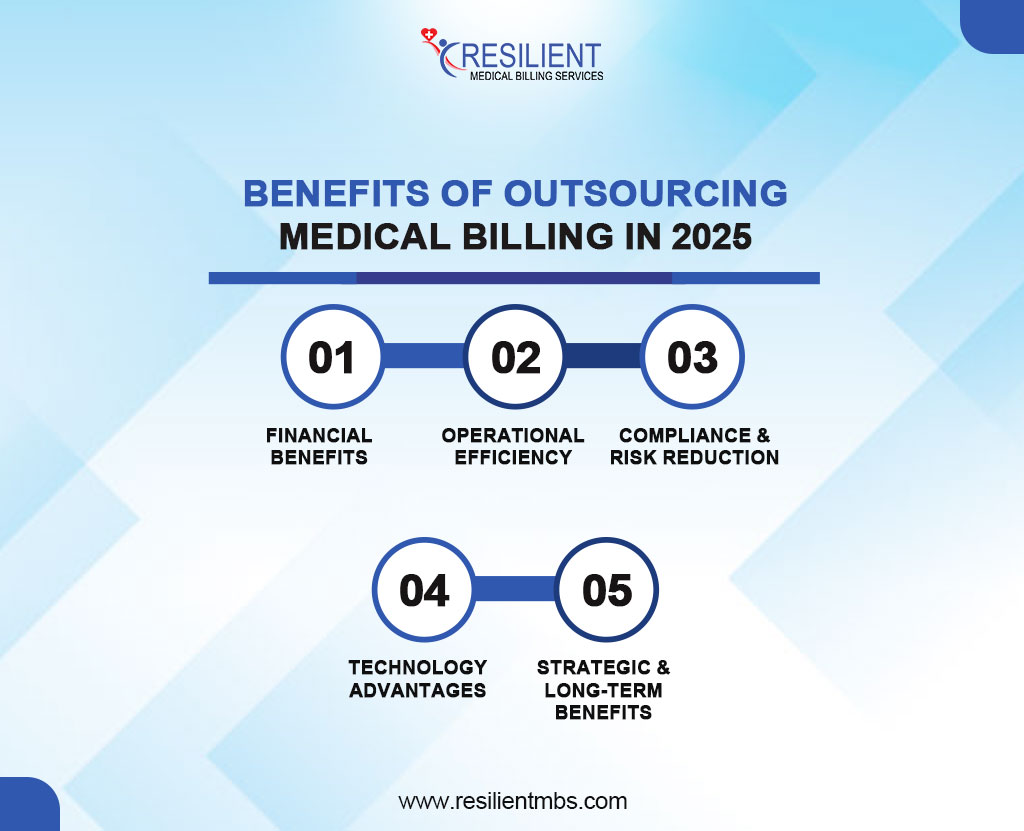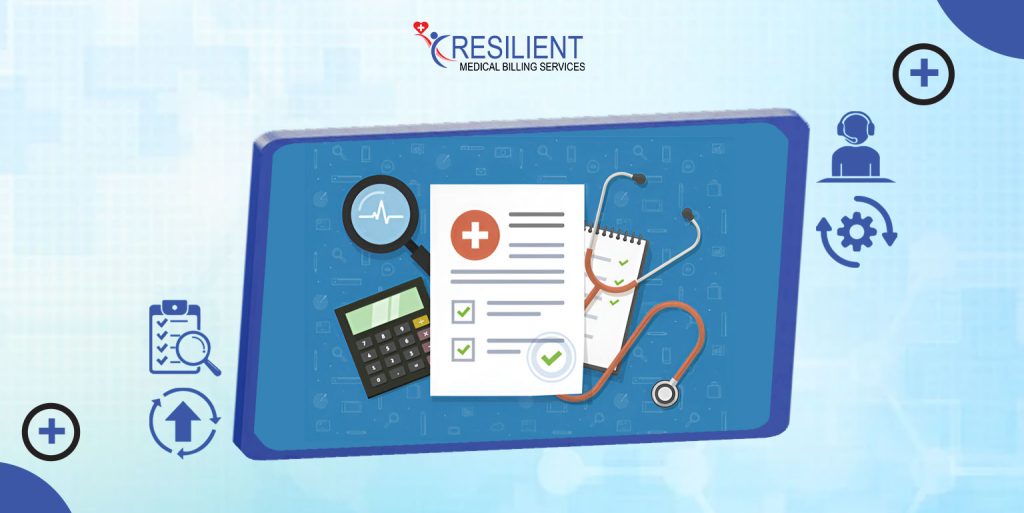The healthcare industry is under more pressure than ever. Costs keep rising, patient demand is growing, and insurance companies are enforcing stricter reimbursement rules. For many providers, one of the biggest challenges is medical billing.
Studies show that up to 80% of medical bills have errors, costing the U.S. healthcare system over $125 billion every year. These mistakes lead to claim denials, payment delays sometimes up to 90 days, and significant revenue loss. About 30% of claims are denied on the first submission, and many of those never get paid at all.
For this reason, accurate and efficient billing systems are no longer optional; they are essential. But managing billing in-house is expensive and time-consuming, requiring ongoing staff training, technology updates, and strict compliance checks.
That’s why many healthcare organisations are now turning to outsourced medical billing. In 2025, outsourcing is proving to be a wise, cost-effective choice. Research shows that practices that outsource billing see up to 50% faster claim processing, 30% lower operational costs, and nearly 99% billing accuracy. Even better, 88% of outsourced claims are paid within 30 days, compared to just 72% with in-house billing.
Outsourcing medical billing enables providers to minimise errors, lower costs, leverage advanced technology, and dedicate more time to patient care.
The Rising Complexity of Medical Billing
Medical billing has become more complicated in recent years, and this will continue in 2025. Doctors and clinics now have to follow new rules, updated HIPAA standards, insurance company requirements, and changes in coding systems like ICD-10 and the upcoming ICD-11. Keeping up with all these changes takes constant learning and training, which makes running an in-house billing team expensive and complicated.
Even experienced staff can struggle with new insurance rules, leading to mistakes, denied claims, and lost revenue. On top of that, the amount of paperwork and billing work has increased, leaving doctors and healthcare staff with less time for their patients.
This has many providers asking: “Should I outsource my medical billing?” For more and more healthcare organisations, the answer is yes. Outsourcing takes away the stress of billing, helps ensure compliance, protects revenue, and lets providers spend more time focusing on patient care.
Benefits of Outsourcing Medical Billing in 2025
In 2025, medical billing is increasingly complex and expensive. In-house management demands additional staff, training, and software, diverting attention from patient care. Outsourcing provides a cost-effective, efficient solution that positions practices for future changes.
1. Financial Benefits
Outsourcing reduces payroll costs because practices don’t need to hire or train billing staff. It also removes the need to buy and maintain costly billing software. Billing companies use advanced systems to make sure claims are coded correctly, submitted on time, and followed up quickly. This leads to fewer denials, faster payments, and more substantial cash flow.
2. Operational Efficiency
With outsourcing, providers get access to trained billing experts who understand the latest insurance rules and requirements. Many companies also use AI tools to catch mistakes before claims are submitted. Services can easily scale up as a practice grows, without extra overhead. Most importantly, outsourcing takes the paperwork burden off doctors and staff so that they can spend more time with patients.

3. Compliance & Risk Reduction
Medical billing rules change often, and mistakes can be costly. Billing companies stay up to date with coding changes, HIPAA rules, and insurance policies to make sure claims are accurate and compliant. They also keep detailed records that help during audits. On top of that, they use secure systems to protect sensitive patient and financial data, reducing both risks and stress for providers.
4. Technology Advantages
Outsourced billing gives practices access to the latest tools without significant investments. These tools track claims, manage denials, and provide clear financial reports. Providers can see revenue trends and performance in real time. Billing companies also make sure telehealth services are billed correctly, so practices get paid for virtual visits. Modern platforms improve communication, making the billing process more transparent and responsive.
5. Strategic & Long-Term Benefits
Outsourcing supports steady cash flow and makes financial planning easier. Practices can choose flexible service options, such as full billing management or help with specific tasks like coding or collections. Over time, outsourcing builds reliable partnerships that align with a practice’s financial goals. Most importantly, it frees up providers to focus on what matters most, delivering quality care to patients while staying prepared for changes in healthcare.
The Role of Technology in Outsourced Medical Billing
Technology plays a significant role in making outsourced medical billing faster, more accurate, and secure. Modern billing software automates coding, reduces human mistakes, and speeds up payments, helping providers avoid costly delays and claim denials.
When billing systems connect with Electronic Health Records (EHR), patient and billing information flows smoothly between platforms. This reduces paperwork for staff and lowers the risk of missing or mismatched details.
Today’s billing technology also includes innovative tools like AI, predictive analytics, and real-time insurance checks. AI catches errors before claims are sent, analytics help predict cash flow and spot common denial issues, and insurance checks confirm patient coverage instantly to prevent rejections.
Security is just as important. Good outsourcing partners use HIPAA-compliant servers, encryption, and fraud detection to keep patient data safe. This not only protects practices from data breaches but also builds trust with patients.
Choosing the Right Long-Term Partner in Medical Billing
Selecting the appropriate outsourcing company is as important as the decision to outsource itself. The ideal partner acts as an extension of your team and has a direct impact on your financial performance.
Here are a few things to look for:
- Experience with practices like yours in size and speciality.
- Transparent Reporting that shows financial performance and billing trends.
- Room to Grow so the partner can handle your needs as your practice expands.
- Reliable Support with dedicated managers and quick responses.
A strong, long-term partnership fosters stability, trust, and aligned objectives. This streamlines billing processes and enables providers to concentrate on delivering high-quality patient care.
Should I Outsource My Medical Billing?
For many healthcare practices, billing presents significant challenges. Frequent claim denials, high staff turnover, payment delays, or increasing costs may indicate it is time to consider outsourcing.
Outsourcing usually costs less than running billing in-house. Professional billing companies have trained experts, the latest technology, and strong knowledge of insurance rules. This means fewer mistakes, faster payments, and less stress on your team. For example, one mid-sized clinic cut its claim denials by 25% after outsourcing, leading to better cash flow.
The Future of Medical Billing – Why 2025 Is the Best Time
Healthcare is changing quickly. New models like value-based care, the rise of telehealth, and digital health tools are reshaping how providers work. At the same time, insurance contracts and compliance rules are getting harder to manage.
As a result, more practices are opting to outsource billing in 2025. This approach helps them stay current with regulations, utilise advanced technology, and reduce administrative workload, allowing providers to devote more time to patient care.
Wrap-Up!
In 2025, outsourcing medical billing is not only convenient but also a strategic business decision. It reduces costs, enhances accuracy, and supports financial stability for practices.
By partnering with a trusted billing service, healthcare providers can reduce stress, get paid faster, and focus on what matters most—patient care.
For healthcare providers, outsourcing medical billing can deliver significant benefits. It reduces costs, minimises errors, accelerates payments, and allows more time to focus on patient care rather than administrative tasks.
To simplify your billing in 2025, contact Resilient MBS. We will manage your billing processes so you can focus on delivering exceptional patient care.
FAQs
What does outsourcing medical billing mean?
Outsourcing medical billing means letting an outside company handle your billing and claims instead of doing it in-house. They take care of coding, submitting claims, and following up with insurance so providers can focus more on patient care.
Should I outsource my medical billing in 2025?
If billing is taking too much time, claims are getting denied often, or hiring staff is becoming expensive, outsourcing can help. In 2025, many practices are turning to experts who use the latest billing technology to speed up payments and reduce mistakes.
How can outsourcing medical billing save my practice money?
With outsourcing, you don’t need to pay for full-time billing staff or buy expensive advanced billing software. Professional billers also make fewer errors, so claims get approved faster and you receive payments on time.
What should I look for in a billing partner?
Look for a company that knows healthcare rules, is transparent about costs, and offers clear reports. A good long-term partner in medical billing will also grow with your practice and keep your data safe.
Is outsourced medical billing safe?
Yes. Reputable billing companies follow HIPAA rules, use secure systems, and stay updated on healthcare regulations. This keeps your patient and financial information protected.










